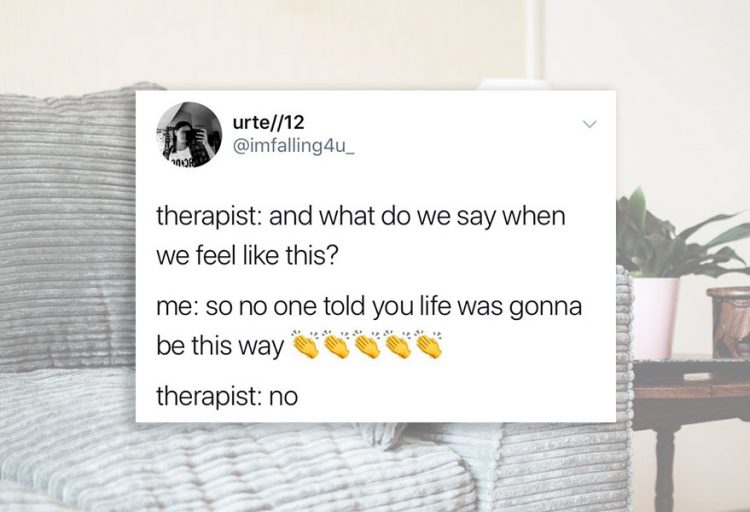Hello!
Welcome to the first “Dear Naomi” column for Sweatpants & Sanity. Thank you to everyone who wrote in. I will reply to everyone, but for this edition I have chosen three to share with the community here as I think they reflect issues that any person may be struggling with.
All three ultimately come down to anxiety—something that is a rising problem in modern society. However, as you can see, the reasons behind them are very different.
Even I, as a therapist, battle anxiety, but with a bit of shared experience and knowledge we can find ways through it together.
Wishing you all a brighter day,
Naomi x
Dear Naomi,
Most of the negative, life-altering incidents in my life were relayed to me via cellphone. Because of this, I have cellphone anxiety. Whenever my cellular rings, my body responds—I can feel my heart start beating a mile a minute, and sometimes I even start to sweat. It was so bad for a while that I switched cellphones from iPhone to Android, just to have different ringtones and the like. What can I do to help myself not feel like this all the time?
From, C
Thanks for writing in, C. This is a problem that many people have and most do not even realize it.
In our modern society, we are surrounded by screens and devices that require our attention and interaction. In addition, technology has allowed the interaction to be immediate. Long gone are the days of writing letters and waiting a week for a response.
As a result, many neuroscience and psychology researchers are beginning to think that our brains have actually become rewired as a result of these devices in our everyday lives. We have become addicted and reliant on feeling constantly connected—just like Pavlov’s dogs learned to salivate when they heard a bell, we, too, react with adrenaline when we hear the sound of a text or an email coming through.
There are many good things about being so connected—it opens up the world to us and many people find great comfort and solace from being able to find friends online they may never meet.
However, it also brings many negatives, one of which is the anxiety of being constantly contactable. Our patience is gone as we expect an instant reply. Our privacy is gone as we have access to these devices at work, at home, in bed, even on the lavatory! Our desire for human connection has been replaced as we no longer need to leave the house to interact.
To speak back to your question, your brain and body are reacting to the phone as if it is a threat and causing you anxiety. Let me explain a bit about how our brains work and learn.
We have two brains—yep, how cool are we! They are the primitive and the intellectual. The primitive brain is what we had as Neanderthals. Its primary function was survival; it would be activated if we encountered a threat and help our bodies to respond accordingly.
For example, if we saw a tiger, our primitive brain would register it as a threat—our heart rate would increase, cortisol would be kicked out to prime us to fight or run, and we would probably run. This would be fine and correct. We wouldn’t want to stand there and ponder if it had eaten before reacting.
However, in modern society we no longer have to hunt and gather—we can buy our meat and veg ready-packaged. So our brains have evolved to see other things as threats, like bills, relationships, or mobile phones! The response is the same because our brains are the same.
However, remember I mentioned the other brain—the intellectual brain. This is what separates us from animals as it gives us the capacity to rationalize, be logical and have abstract thought (to imagine the future and recall the past). When we use this part of our brains we are calm, in control and usually positive.
Wouldn’t it be great if we were always in this part? Yes, but the primitive brain still plays a vital role—we need that automatic and instant response to life threatening situations—so it’s about training our brains what is really life threatening and what is simply our primitive brains being paranoid.
Because in the past you have received bad information over the phone, when you read it your anxiety levels went up and your brain has learned that the phone equals a threat—like a tiger. Your primitive brain kicked out stress chemicals, making you breathe fast and feel anxious. Now that worked…yes you felt awful, but to your primitive brain it was a success because you are still alive. But your brain registered that noise as a threat and so next time it will once again try to keep you out of harm’s way and give you that anxiety again.
So first of all I would say—well done for trying to change the tone. This is a good step. Now, you need to retrain your brain to associate your phone with positive things. For example, is there a ringtone or text beep that makes you smile or laugh? Maybe a screensaver of a picture that makes you happy? Have you got friends or relatives who you can talk to about this and ask them to check in with a positive message of encouragement every day for a few weeks? Just as your brains learned that the phone is bad—it can also relearn it is positive, it just takes repetition and some time.
Also, I would suggest some breathing exercises to bring down that anxiety when you do get it. Try square breathing. Close your eyes and imagine a square. Now mentally draw a line across the top of the square as you breathe in and count to 7. Then, when you get to the corner of the square, hold that breath to the count of 4 and then exhale to the count of 7, and as you do, imagine that line now going down the right hand side of the square to the bottom right corner. Stop again and hold for 4, and then inhale to 7 as you draw the line across the bottom. Stop in the bottom left corner, hold for 4 and then finally draw a line up as you exhale for 7 and complete the square. Repeat this until you feel your heart rate and breathing slow.
The more positive messages and encounters you have with your phone, and the more you do that breathing when you do panic and realize you are back in control, the less the anxiety will take over and your brain will learn the phone is nothing to be afraid of.
Want to write to Naomi?









Leave a Reply